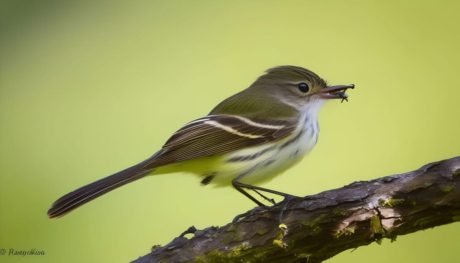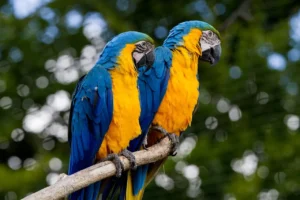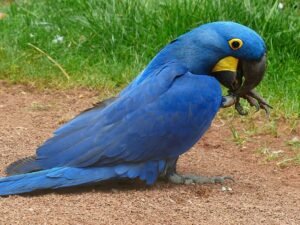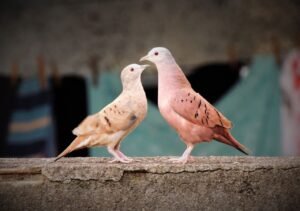Finches Bird Price (2023) | Types, Food, Health, Training
Think about buying a finch bird to add a new member to the family. Understanding the associated costs is important before you commit. Due to their vibrant colours and charming melodies, finch birds make very popular pets. Finch bird prices can vary, though, based on the species, age, and region, among other factors. The average cost of finch birds and the factor affecting it will be covered in this article. Moreover, we’ll give you several ideas on how to locate a reputable breeder or rescue organization to make sure you’re receiving a healthy, happy bird at a reasonable price. Let’s dive in and discover more about how much it costs to keep a finch bird.
Finches Bird Price in Different Countries
Finch bird prices can vary significantly depending on the country and the species. Here is a breakdown of finch bird prices in different countries:
- United States: The average price of a finch bird in the United States is around $20 to $100. The cost can vary depending on the species, age, and breeder.
- United Kingdom: In the United Kingdom, the price of a finch bird can range from £10 to £100, depending on the species and the age of the bird.
- Australia: The price of a finch bird in Australia can range from $15 to $150, depending on the species and the breeder.
- Canada: In Canada, the average price of a finch bird is around $50 to $150, depending on the species and the age of the bird.
- India: In India, the cost of a finch bird can vary depending on the species and the location. On average, a finch bird can cost between 1,000 to 10,000 INR.

Finches Bird Price In India
The price of a finch bird in India can vary depending on the species and location. On average, a finch bird can cost between 1,000 to 10,000 INR.
However, the cost can be higher for certain species and rare mutations. It’s important to find a reputable breeder or rescue organization to ensure you’re getting a healthy and happy bird at a fair price. Additionally, be prepared to incur ongoing costs for food, housing, and veterinary care.
Video Credit: Birds Tak .1.5 Million Views .6 hour ago …
Finches Bird chicks Price In India
The price of finch bird chicks in India can vary depending on the species and location. On average, a finch bird chick can cost between 500 to 1,500 INR. However, the cost can be higher for certain species and rare mutations.
Finches Prices In Major Indian Cities
Prices of Finches Birds vary in different Indian cities, here are the prices of finches in major Indian cities:
| Finches Price List India | |
|---|---|
| Different Locations | Prices- |
| Finches Bird Price in Delhi | 1,000 to 5,000 INR |
| Finches Bird Price in Kolkata | 800 to 3,500 INR |
| Finches Bird Price in Mumbai | 900 to 4,000 INR |
| Finches Bird Price in Agra | 800 to 3,500 INR |
| Finches Bird Price in Chennai | 1,200 to 5,000 INR |
| Finches Bird Price in Pune | 700 to 3,400 INR |
| Finches Bird Price in Bangalore | 1,000 to 5,000 INR |
| Finches Bird Prices in Hyderabad | 850 to 3,500 INR |
| Finches Bird Price in Chandigarh | 800 to 3,500 INR |
| Finches Bird Price in Kerala | 700 to 3,400 INR |
| Finches Bird Price in Jaipur | 900 to 3,200 INR |
| Finches Bird Price in Indore | 1,000 to 4,500 INR |
| Finches Bird Price In Ahmedabad | 1,200 to 4,200 INR |
| Finches Bird Price In Lucknow | 700 to 3,800 INR |
| Finches Bird Price In Nagpur | 800 to 3,700 INR |
Factors that Affect the price of Finches Bird
Many factors, including the species, age, gender, location, and breeder, can affect the cost of a finch bird. Price increases may result from some species being more desired or rare. Younger and more colourful birds could also be more expensive than older or plainer ones. Geography can have an impact on cost as well; in some cities or locations, there is a stronger demand for finches, which drives up costs. Last but not least, reputable breeders that make an investment in appropriate breeding and care may charge extra for their birds.

Finches Bird price comparison:
Do your research and check pricing from several sellers if you’re thinking about purchasing a finch bird. Finches may be sold by some pet shops, breeders, and rescue groups at various costs. You must make sure you are paying a reasonable amount for a bird that is both healthy and happy. Don’t just go with the lowest alternative because cheaper costs might indicate poor breeding or care.
How to negotiate the price of Finches Bird:
If you’ve found a finch bird you’re interested in, but the price seems too high, it may be possible to negotiate with the breeder or seller. Start by doing your research and finding out the average price for the species and location. Then, approach the seller with a reasonable offer based on this information. Be respectful and polite, and don’t be afraid to walk away if the seller isn’t willing to negotiate.

The true cost of owning a Finches Bird:
While the initial cost of buying a finch bird may be relatively low, it’s important to consider the ongoing costs of ownership. This includes the cost of food, housing, veterinary care, and supplies. Additionally, finches are social creatures and may become lonely or stressed if kept alone, so you may need to invest in multiple birds or socialization opportunities. Be prepared to invest time and resources into properly caring for your finch bird to ensure they live a happy and healthy life.
Finches Bird
The Fringillidae family of small, colourful birds includes finches. They are indigenous to a number of countries, including Asia, Africa, Europe, and the Americas. Due to their beautiful appearance, lively personality, and charming singing, finches are well-liked by bird enthusiasts.

Finches exist in more than 100 different species, each with distinctive physical traits and vocalisations. Zebra finches, society finches, Gouldian finches, and diamond doves are a few of the most common finch species. These are small birds with spherical bodies and short, conical beaks that normally range between three to six inches in length.
Since they live in groups, finches are social birds. They frequently engage in various activities including singing, jumping, and flying. They are animated and energetic. Also, different calls and songs from different species make finches stand out from other birds. While some only chirp and trill, certain finches are well-known for their intricate and melodious songs.
Finches are wonderful companions and may be kept as pets in captivity. They are quite simple to look for and only need a diet of seeds, clean water, and occasional fruits and vegetables. Also highly resilient, finches may survive in a number of environments, such as aviaries, cages, or outdoor habitats.
Finches chicks (Baby Finches)
Baby finches, sometimes referred to as finch chicks, are charming and fragile creatures. They normally have closed eyes and no feathers when they are born and rely on their parents for warmth, nourishment, and protection. As they mature, they acquire feathers, learn fly, and grow more independent and energetic.

Finches’ chicks need to be carefully watched over and monitored. To ensure their health and well-being, they require a warm and secure home, a healthy diet, and frequent cleaning. It’s important to provide them with a well-balanced diet that includes items high in protein like egg whites, soaked seeds, and insects.
Feeding finch chicks may be difficult, especially for inexperienced bird owners. To ensure their growth and survival, it is essential to have a thorough understanding of their requirements and behaviour. In general, keeping finch chicks with their parents is better since they can give the best care and guidance.
Types of Finches Bird
There are over 100 species of finches, each with unique physical characteristics, vocalizations, and habitats. Here are some of the most common types of finches:
Zebra Finch:
One of the most popular pet finches, the zebra finch is native to Australia and is known for its distinctive black and white striped feathers and cheerful chirping.

Society Finch:
This domesticated finch is a crossbreed of several species of finches, making it a popular choice for pet owners due to its adaptability and friendly personality.
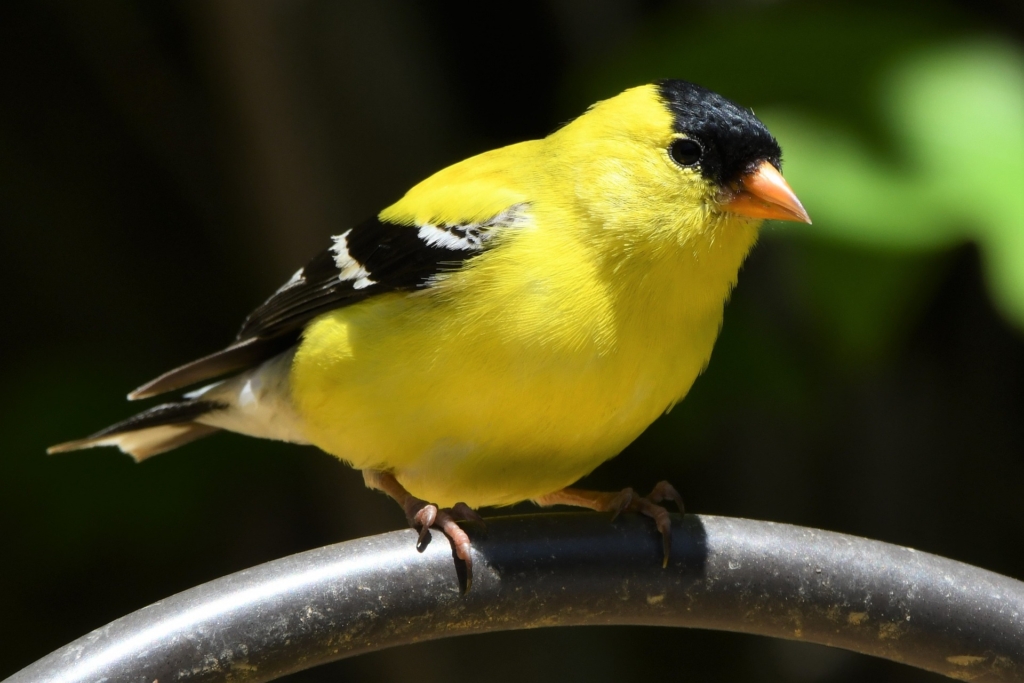
Gouldian Finch:
Native to Australia, the Gouldian finch is known for its strikingly colourful plumage, which includes red, yellow, green, and purple hues.

American Goldfinch:
This North American finch is known for its bright yellow feathers and cheerful song. It’s a popular backyard bird and is often seen perching on thistle plants.

Purple Finch:
This finch is native to North America and is known for its rich, raspberry-coloured plumage and melodic song.
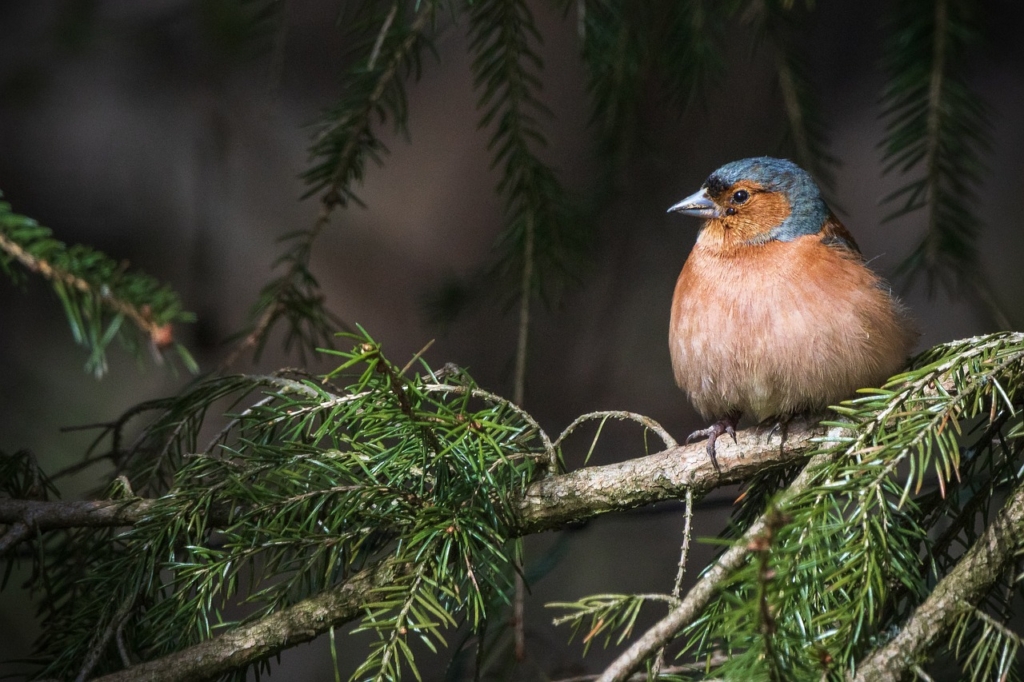
House Finch:
A common backyard bird, the house finch is native to North America and is known for its reddish-brown feathers and warbling song.
Java Sparrow:
Also known as the Java finch, this bird is native to Indonesia and is known for its beautiful black and white plumage.
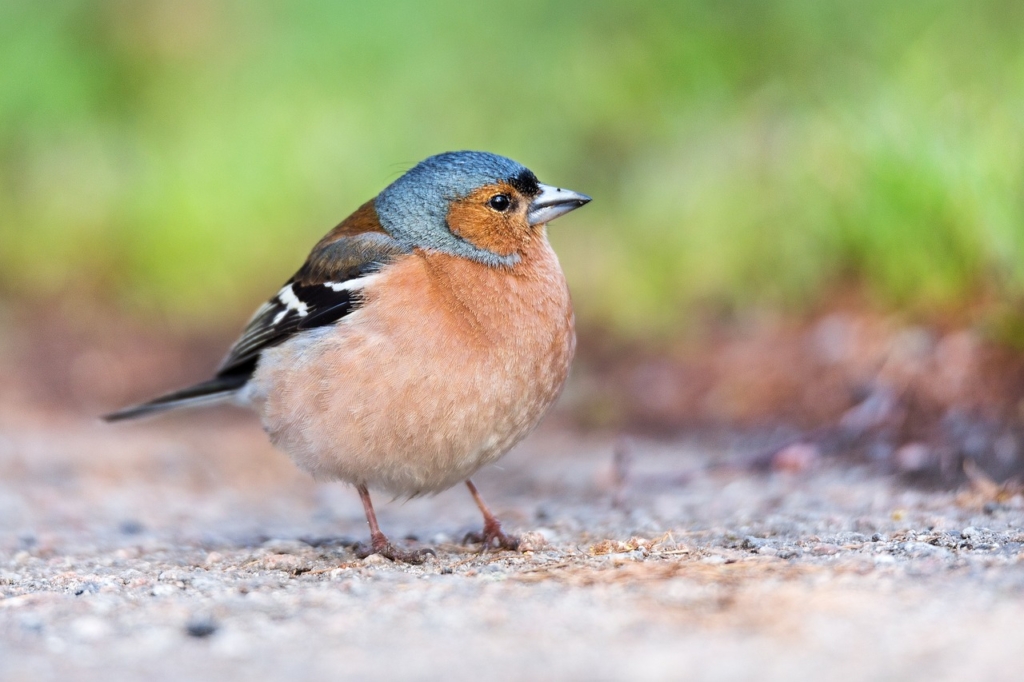
African Silverbill:
Native to sub-Saharan Africa, this finch is known for its silvery-white plumage and cheerful chirping.
Canary:
Although technically not a finch, the canary is a popular pet bird known for its bright, colourful feathers and beautiful singing voice.
Video Credit: Toofan Express
History of Finches Bird
Finches are a group of small passerine birds that are found all over the world, from the arctic tundra to tropical rainforests. They belong to the family Fringillidae and are known for their small size, beautiful plumage, and distinctive beaks. Charles Darwin famously studied finches on the Galapagos Islands, and his observations of their beak variations contributed to his theory of evolution by natural selection.
Appearance of Finches
Finches vary in appearance depending on the species, but they are generally small birds with short, conical beaks and compact bodies. They come in a wide range of colours, from dull browns and greys to vibrant yellows, greens, and reds. Some species have distinctive markings, such as stripes or spots, while others have more subdued patterns. Many species have prominent eye markings and distinctive vocalizations.

Temperament of Finches
In general, finches are sociable birds who like the company of others of their own kind. Generally speaking, they are not aggressive towards people, but if they feel threatened or crowded, they may become aggressive with other birds. Several species, like the zebra and society finches, are known for their calm, amiable demeanour, and they may make good pets.
The behaviour of Finches Bird
Finches are incredibly active birds that spend a lot of time searching for food, interacting with other birds, and performing courting behaviours. To find seeds, insects, and other tiny food, they are often seen hopping about the ground or perching on trees. Several species are well-known for their acrobatic skills and are often spotted putting on aerial shows. Moreover, finches have been found to sing, and they are capable of a range of voices, from chirps that are cheerful to melodious voices that are complex.
Pros and Cons of Finches Birds
There are many Pros and Cons of Finches Birds, Some of them are:
| Pros | Cons |
|---|---|
| Low maintenance | Can be noisy |
| Inexpensive to purchase | Can be messy |
| Colourful and entertaining | May require specialized diets |
| Relatively easy to breed | Can be prone to diseases |
| Social birds that enjoy the companionship | May not be as affectionate as other pets |
| Can be kept in small spaces | May require specific temperature and humidity conditions |
It’s important to consider both the pros and cons of owning finches before deciding if they are the right pet for you. While they can be enjoyable pets, they do require some specialized care and attention to ensure their health and happiness.
Facts about Finches
Here are some interesting facts about finches, must read them before buying one:
- Finches are small birds that belong to the family Fringillidae, which includes over 100 different species.
- They are found on every continent except Antarctica and are known for their colourful feathers and melodic songs.
- Finches have a unique beak shape that is adapted to their specific diet. Some have short, thick beaks for cracking seeds, while others have long, thin beaks for extracting nectar from flowers.
- They are highly social birds that enjoy the company of other finches and can often be found in flocks.
- Finches are monogamous and form strong bonds with their mates, often staying together for life.
- Many species of finches are known for their elaborate courtship displays, which involve singing, dancing, and offering gifts to their mate.
- Some finch species, such as the zebra finch, are popular as pets due to their charming personalities and ease of care.
- Finches are also commonly used in scientific research due to their small size and ability to be easily bred in captivity.
- In the Galapagos Islands, Charles Darwin studied the various species of finches found there, which helped him develop his theory of evolution by natural selection.
- Despite their small size, finches have powerful flight and are capable of travelling long distances to find food and water.

Care Tips for Finches Bird
Care for your Finches Birds make their life happy and cheerful, follow the given below Care Tips for Finches Birds:
- Housing: Provide a spacious and clean cage with plenty of room for your finch to fly and play. A good rule of thumb is to have a cage that is at least 18x18x18 inches in size.
- Diet: A finch’s diet should consist of a variety of seeds, fresh fruits, and vegetables. Avoid feeding them avocado, chocolate, and caffeine as they can be toxic to birds.
- Water: Make sure your finch always has access to fresh, clean water. Change their water daily and clean the water dish regularly.
- Toys and Perches: Provide your finch with plenty of toys and perches to keep them active and engaged. Natural branches and non-toxic toys are good choices.
- Socialization: Finches are highly social birds and do best in pairs or small groups. If you only have one finch, make sure to spend time with them every day to prevent loneliness.
Health Issues of Finches Bird
Finches birds can face many health issues, some common Health Issues of Finches Birds are:
1. Respiratory Infections:
Finches are prone to respiratory infections, which can be caused by poor ventilation or exposure to drafts. Symptoms include difficulty breathing, nasal discharge, and wheezing.
2. Feather Plucking:
Feather plucking can be a sign of stress or boredom. Make sure your finch has plenty of toys and perches, and spend time interacting with them every day.
3. Parasites:
External parasites such as mites and lice can affect finches. Symptoms include itching, feather loss, and restlessness.
4. Fatty Liver Disease:
Feeding your finch a high-fat diet can lead to fatty liver disease, which can cause liver failure. Symptoms include lethargy, loss of appetite, and weight loss.
Finches Lifespan
The lifespan of finches varies depending on the species. In general, finches can live anywhere from 5 to 10 years in captivity with proper care. Some species, such as the zebra finch, have been known to live up to 15 years. Providing a healthy diet, a clean living environment, and regular veterinary care can help ensure a long and happy life for your finch.

Food for Finches Bird
Must follow the given below diet for healthy life of your Finches:
| Food for Finches Bird |
|---|
| Fresh fruits and vegetables |
| Seeds and pellets |
| Live food, such as mealworms and crickets |
| Eggfood |
| Grit and oyster shell |
Names for Finches
Chose the Names for Finches Birds from the given below table:
| Names for Finches |
|---|
| Zebra Finch |
| Society Finch |
| Gouldian Finch |
| Spice Finch |
| Java Finch |
| Owl Finch |
| Shaft-tailed Finch |
| Parrot Finch |
| Strawberry Finch |
| Cut-throat Finch |
| Star Finch |
| Diamond Firetail Finch |
| Black-cheeked Finch |
| Yellow-fronted Canary |
| Red Siskin |
| Yellow Canary |
Finches Video
Video of Finches Bird to let you understand Finches Bird care tips, food, lifespan, and other factors. Video Credit: 4 Ever Green
Conclusion:
In conclusion, individual aspects, including the type of finch, location, age, and state of health, affect the cost of finches birds. It is also worth noting that researching facts about birds, such as their specific care requirements and behaviors, can help you make an informed decision when considering the purchase of finches. The long-term costs of caring for these birds, such as their food, housing, and veterinary care, must be taken into account even though they may have a specific price tag. In the end, it’s critical to conduct in-depth research and price comparisons before making a purchase to make sure you’re getting the best value for your money and giving your feathered friend the best care.
Frequently Asked Questions on Finches Bird:
-
What do finches eat?
Finches primarily eat seeds, but they also enjoy fresh fruits and vegetables, live food such as mealworms and crickets, egg food, and grit and oyster shells for digestion.
-
How long do finches live?
Finches have a lifespan of 5-10 years, depending on the species and their overall health and care.
-
What kind of housing do finches need?
Finches require a spacious cage with room to fly and move around, as well as perches and nesting areas. They also need daily access to natural light, fresh air, and exercise.
-
Can finches be kept alone?
Finches are social birds and thrive in pairs or groups. It is not recommended to keep a single finch as it can lead to boredom and behavioural issues.
-
Do finches require special veterinary care?
Finches require routine veterinary care to maintain their health and well-being. A bird veterinarian can perform regular check-ups, provide preventative care, and treat any illnesses or injuries.
-
How much do finches cost?
The cost of finches varies depending on the species, age, and location. On average, a single finch can cost between $20 to $100, with some rarer species fetching higher prices.
-
Can finches be trained to talk or do tricks?
Finches are not known for their ability to talk or do tricks, as they are primarily kept as companion birds for their beauty and song. However, with patience and consistent training, some finches can learn to whistle or mimic sounds.
Recommended –


























